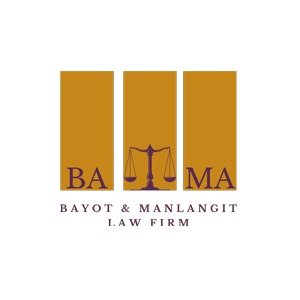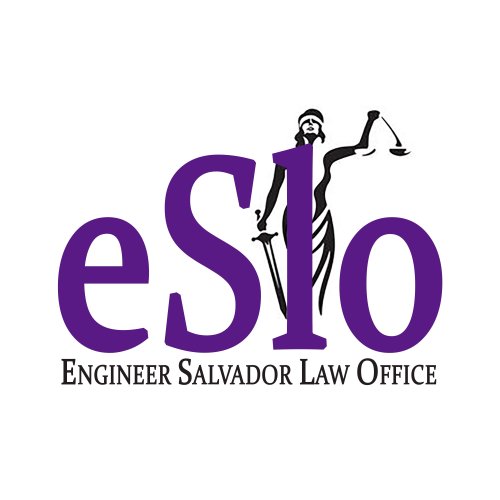Best Lawyers in Cavite City
Share your needs with us, get contacted by law firms.
Free. Takes 2 min.
List of the best lawyers in Cavite City, Philippines
Philippines Legal Questions answered by Lawyers
Browse our 263 legal questions in Philippines and read the lawyer answers, or ask your own questions for free.
- Separated but not legally - financial status
- My husband and I have been separated (not legally) since October 2025. The separation is not formal, as I chose to leave our home due to the verbal and emotional abuse I experienced daily. My husband has not worked for the past eight years, and I have been the sole... Read more →
-
Lawyer answer by Recososa Law Firm
Hello: Thank you for sharing your situation. I understand how emotionally exhausting this must be for you. I am the owner of Recososa Law Firm, and we are located in the Philippines, with offices in Luzon, Visayas, and Mindanao. Presuming...
Read full answer - Spouse separated in fact - financial status disclosure
- My husband and I have been separated (not legally) since October 2025. The separation is not formal, as I chose to leave our home due to the verbal and emotional abuse I experienced daily. My husband has not worked for the past eight years, and I have been the sole... Read more →
-
Lawyer answer by Recososa Law Firm
Hello: Thank you for sharing your situation. I understand how emotionally exhausting this must be for you. I am the owner of Recososa Law Firm, and we are located in the Philippines, with offices in Luzon, Visayas, and Mindanao. Presuming...
Read full answer - is the 200k annulment fee has to be paid i full?
- me and my ex has been separated for almost 16 years. i really want an annulment. we got married as soon as we turned 18. i didn't get any consent from my parents. and my ex doesn't have work up until now.
-
Lawyer answer by ERLAW
Atty. Roque here, an annulment lawyer from Roque Law Office. Based on what you shared, being separated for 16 years alone is not yet a ground for annulment under Philippine law. However, getting married at 18 without parental consent may...
Read full answer
Philippines Legal Articles
Browse our 18 legal articles in Philippines written by expert lawyers.
- Managing Labor Inspections for BPOs in the Philippines
- Managing Labor Inspections for BPO Companies in the Philippines The Department of Labor and Employment (DOLE) conducts unannounced inspections to verify compliance with General Labor Standards and Occupational Safety and Health standards. BPO companies must maintain meticulous payroll records covering the past three years to prove payment of night shift... Read more →
- Set Up a Foreign-Owned Corporation in the Philippines
- Setting Up a Foreign-Owned Domestic Corporation in the Philippines Key Takeaways Foreign investors can successfully incorporate and operate within the Philippine market by following highly structured national and local regulations. Successfully establishing your business requires understanding foreign ownership limits, meeting specific capital requirements, and navigating multiple government agencies. The Foreign... Read more →
- Guide to BSP Fintech Regulatory Compliance in the Philippines
- Fintech companies in the Philippines are primarily regulated by the Bangko Sentral ng Pilipinas (BSP) under the Manual of Regulations for Non-Bank Financial Institutions. Minimum capital requirements range from PHP 20 million to PHP 200 million, depending on the license type and business model. All fintech startups must register with... Read more →
About hiring a lawyer in Cavite City, Philippines:
Hiring a lawyer in Cavite City, Philippines, can be a crucial step in resolving legal issues effectively. It is essential to find a lawyer who specializes in the relevant area of law and has experience handling similar cases. Initial consultations are often offered by law firms to discuss the details of your case and determine if they are the right fit for you.
Why You May Need a Lawyer:
There are various situations where you may require legal assistance in Cavite City, Philippines. These can include matters related to family law, property disputes, criminal charges, business transactions, and more. A lawyer can offer guidance, representation, and expertise to help you navigate the legal system and protect your rights.
Local Laws Overview:
Cavite City, Philippines, follows the laws set by the Philippine legal system. Some key areas of local laws that lawyers in Cavite City often deal with include labor laws, family laws, real estate laws, and criminal laws. Understanding these laws and how they apply to your specific situation is crucial in resolving legal matters effectively.
Frequently Asked Questions:
1. How do I find the right lawyer for my case?
It is essential to research and consider lawyers who specialize in the area of law relevant to your case. You can ask for recommendations from friends, family, or professional organizations in Cavite City.
2. What should I expect during the initial consultation with a lawyer?
The initial consultation is an opportunity for you to discuss your case, ask questions, and determine if the lawyer is the right fit for you. The lawyer may also provide insights on the legal process and potential outcomes.
3. How much does it cost to hire a lawyer in Cavite City?
Legal fees can vary depending on the complexity of the case, the lawyer's experience, and the services required. It is essential to discuss fees and payment terms with your lawyer before proceeding with legal representation.
4. How long does it take to resolve a legal matter with a lawyer in Cavite City?
The duration of resolving a legal matter can vary depending on the complexity of the case, the legal process involved, and other factors. Your lawyer can provide an estimated timeline based on the specifics of your case.
5. Can I represent myself in legal proceedings without a lawyer?
While you have the right to represent yourself in legal proceedings, it is advisable to seek legal assistance, especially in complex cases. A lawyer can provide expertise, guidance, and representation to help you navigate the legal system effectively.
6. What qualifications should I look for in a lawyer in Cavite City?
When hiring a lawyer, look for qualifications such as relevant experience, specialization in the area of law applicable to your case, good reputation, and communication skills. It is essential to have a lawyer you can trust and feel comfortable working with.
7. How can I verify a lawyer's credentials in Cavite City?
You can verify a lawyer's credentials by checking with the Integrated Bar of the Philippines (IBP) or professional organizations in Cavite City. It is essential to ensure that your lawyer is licensed to practice law and in good standing.
8. What information should I provide to my lawyer during the initial consultation?
During the initial consultation, provide your lawyer with relevant details of your case, any documents or evidence you have, and be honest and transparent about your situation. This information will help your lawyer assess your case effectively.
9. What are the common legal services offered by law firms in Cavite City?
Law firms in Cavite City offer a wide range of legal services, including legal representation in court proceedings, legal advice, contract drafting, mediation, and alternative dispute resolution. They can assist individuals, businesses, and organizations with various legal matters.
10. How can I evaluate the success rate of a lawyer in Cavite City?
You can evaluate a lawyer's success rate by reviewing their track record, client testimonials, case results, and reputation in the legal community. It is also helpful to ask for references and feedback from past clients to gauge the lawyer's competence and effectiveness.
Additional Resources:
If you need legal advice in Cavite City, you can contact the Integrated Bar of the Philippines (IBP) Cavite Chapter or local legal aid organizations for assistance. These resources can provide information, referrals, and support for individuals seeking legal help in Cavite City.
Next Steps:
If you require legal assistance in Cavite City, Philippines, it is advisable to research and contact reputable law firms in the area. Schedule consultations with potential lawyers to discuss your case, evaluate your options, and choose the best representation for your legal needs. A lawyer can help you understand your rights, navigate the legal system, and work towards a favorable resolution for your case.
Lawzana helps you find the best lawyers and law firms in Cavite City through a curated and pre-screened list of qualified legal professionals. Our platform offers rankings and detailed profiles of attorneys and law firms, allowing you to compare based on practice areas, experience, and client feedback.
Each profile includes a description of the firm's areas of practice, client reviews, team members and partners, year of establishment, spoken languages, office locations, contact information, social media presence, and any published articles or resources. Most firms on our platform speak English and are experienced in both local and international legal matters.
Get a quote from top-rated law firms in Cavite City, Philippines — quickly, securely, and without unnecessary hassle.
Disclaimer:
The information provided on this page is for general informational purposes only and does not constitute legal advice. While we strive to ensure the accuracy and relevance of the content, legal information may change over time, and interpretations of the law can vary. You should always consult with a qualified legal professional for advice specific to your situation.
We disclaim all liability for actions taken or not taken based on the content of this page. If you believe any information is incorrect or outdated, please contact us, and we will review and update it where appropriate.
Refine your search by selecting a practice area.






























